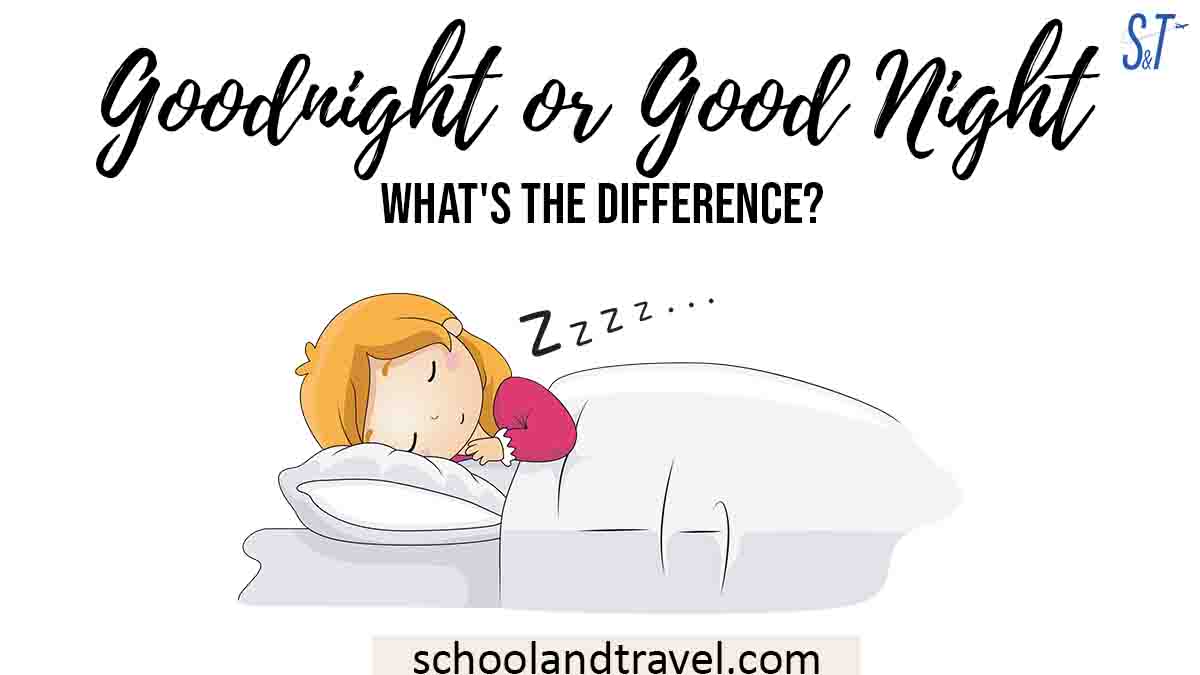Physical Address
#1 Shell Camp Owerri, Nigeria

A lot of people are caught in the argument of whether to write “Goodnight (without a space between the two words) or Good Night (with a space between the two words)”.
According to the Oxford advanced dictionary, these words are correct and have their ideal meanings depending on the context of usage and their role in a sentence.
The words “Good” and “night,” either written together, separately, can serve as nouns, interjections, or adjectives.
This article will explain these words and help you understand the difference between them.
The concept of greeting is all about showing concern, acknowledgment, or respect for someone. Goodnight or Good night is a greeting that is said at night.
In line with the modern way of living, when committee members in a meeting tell one another “good night” after a session or meeting by 8 pm, they retire to their homes or apartments.
Thus good night is more of a departure greeting wishing an excellent night to someone about to leave an environment at night.
Let’s look at the different contexts in which these other forms can work:
An adjective is a word that qualifies as a noun or a verb. In the context of Goodnight as an adjective, you write it together as a single word.
For instance, Jackie Bake couldn’t sleep, until I gave her a goodnight kiss through the phone. In this context, the goodnight is an adjective describing the type of kiss.
However, the presence of “goodnight” indicates the nature and the type of kiss she received before going to bed. Thus, to better understand the kind of kiss, the “goodnight” is written together.
Examples:
As you read this section, the major question you will ask is this; Why can’t I write good-night as an adjective?
The answer is that a hyphen creates a compound word; thus, hyphenating the word “good-night” makes it become a new word and excluding it from an adjective as stated by grammarians.
Good Night as an interjection is similar to utterances like “Hello,” “Hi,” and other forms of greetings to express farewells to people around or people you know.
Interjections are short utterances; they are considered complete sentences standing alone.
Examples:
Read this: Priviledge vs. Privilege – Which is correct?
A noun is a name given to something or someone. In the context of goodnight as a Noun, it is very scarce in usage, although, in some context, it can serve as an object.
Examples:
As you read this article, another question that comes to you is this; Why can’t I write good-night as a noun?
The answer is that a hyphen creates a compound word; thus, hyphenating a “good-night” makes it become a new word and excluding it from a noun, as stated by grammarians.
Good Night and Goodbye are closely related in usage. Grammarians regard both of them to be correct but not in all contexts.
When used in the sentence, “good night” indicates that the receiver of the message is expected to be seen the next day, while in the context of Goodbye, there’s no assurance that you will see the person the next day.
Looking at the word “Goodbye,” you will find out that the “Good” there is an adjective describing the sender’s wishes. While “bye”, on the other hand, represents the object.
However, it is best to write the word “goodbye” instead of “Good bye.”
Goodnight or Good Night are correct depending on the context of usage. In the context of Goodnight as an adjective, you write it together as a single word to perform its function in the sentence.
In the context of Goodnight as a Noun, it is very scarce in usage, although, in some context, it can serve as an object.
Awesome one; I hope this article answered your question.
Related articles:




